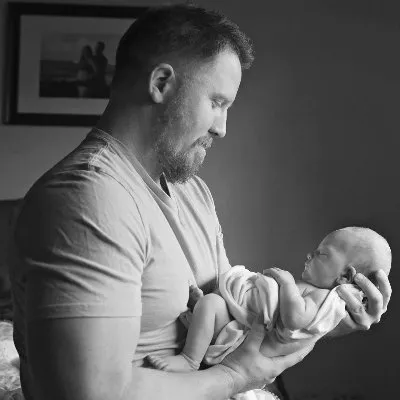Discipleship is almost entirely a process of unlearning.
Transformation of a person’s life does not take place in an instant – that should be obvious. Changing attitudes, mindsets and behavior requires so much more than just a prayer of commitment.
The table needs to be cleared before it can be re-set.
I see the process of ‘being made new’ as happening in two parts simultaneously throughout the life of a believer:
- Unlearning all the messy mindset we had when we were dead in our sins.
- Relearning the right mindset – the mindset of Christ.
And not necessarily in that order.
We know that there’s a ‘conflict’ between our flesh and the Spirit of God (Galatians 5:17). Our sinful desire rears its ugly head and it’s up to us to resist this with God’s help each time.
But what I’m sharing today isn’t necessarily about struggles against sinful desire.
Though that’s certainly part of it.
It’s about corrupted behaviors and mindsets that the world taught us before we knew Christ and how we then go about unlearning them on our journey of transformation.
This includes attitudes, reactions and impulses — even social etiquette — a holistic renewal of how we live and think and act.
It’s a mandate that every Christian should therefore be in a constant state of brutal self-analysis.
Don’t get me wrong – the Father, through His Spirit will guide us and transform us as He wills.
But there’s a human responsibility that isn’t talked about nearly enough.
We have so many ‘default settings’ that need to be addressed and reset one by one, and I believe a lot of discipleship misses this or at least does it very poorly. Churches focus so much on spiritual health but never adequately address the practicality of unlearning patterns of behavior and mindset.
Most churches I’ve been to frankly don’t ‘cater’ well for those of who grew up outside it.
Even though what needs to be unlearned is often our ‘instinctive’ default, the more we allow Christ to shape and mold us, the mindset of Christ will gradually begin to take over.
Christ then becomes our behavioural ‘default’.
Perhaps you’re trying to figure out what I’m getting at here. I’ll clarify it all for you with one honest example from my own life to help you.
See if you can relate.
One thing that took me many years to unlearn after becoming a Christian
Terrible circumstances as a youth caused me to have a general hatred toward people who I believed ‘had it good’.
People with material wealth especially were the scum of the earth.
But not only rich people.
I came to realize that I was simply full of envy for happy people with normal families (took me a long time to realize this).
At times I felt like I hated people who I had no actual reason to hate.
I’ll give you an example:
I started going out with a girl briefly when I was about 20.
She was from a wonderful family out in the countryside, and her parents loved each other – they were also a working class family but they were just simply ‘happy’ and content, and very kind to me.
That girl I dated was incredibly patient with me.
But my envy of her happiness wrecked our friendship.
I only know this now but at the time it wasn’t clear to me that I had major issues and terrible mindsets that needed extensive healing (I was way too stubborn at the time to recognize this). I was totally blind to it and thought that because I became a Christian, God had already changed me.
But I hated her for buying her first new car, getting a great new job and even (crazy as it sounds now) buying a new pair of shoes!
Everything about her happy, normal existence I found myself loathing out of jealousy.
And this was in my 20’s!
I wasn’t a child and no longer under my parents’ control. I had a job and was capable of getting my act together (my mindset prevented it). I was an adult man – a Christian adult man - still hung up on injustices from my youth.
It cost me many other friendships over the years too.
This was one mindset that I had to gradually – and painfully – unlearn.
The ascending spiral staircase analogy
An old pastor friend of mine shared a powerful analogy with me recently.
I don’t know where it comes from.
The analogy is that of an ascending spiral staircase toward God.
When we become a believer, we start ascending a spiral staircase that represents our transformation, moving up toward the Father and at every stage of the ascent, we’re confronted with our issues that need change.
In order to continue the ascent, we deal with the issue first and then we continue moving up.
Here’s the significance of the spiral:
Imagine windows at every level of a spiral staircase tower that are all vertically aligned.
When you’ve been around one rotation moving up, you’re forced to confront the same issue again looking out a higher window.
This time it’s at a higher level and you’re closer to God.
You keep climbing and spiraling up, addressing the same issues again and again, but as you get higher and higher, you face the same issues from a stronger, better position.
Realization of sin is always step #1.
You then begin your journey up the spiral staircase toward the Father.
As you climb the staircase and become stronger and more discerning in God, you reach new levels that force you to deal with the deeper issues in your life which led to the problems in the first place.
It gets deeper and deeper, and often more revealing as you ascend.
Ultimately, I believe God wants us to revisit issues constantly as we mature in Him.
I don’t believe in instant transformation.
I’ll be revisiting and readdressing my issues until the day I die.
God never gives us more than we can handle.
“And we all, with unveiled face, beholding the glory of the Lord, are being transformed into the same image from one degree of glory to another.”
2 Corinthians 3:18
The Father has a way of unearthing the deepest dirt and filth in our lives at just the right time, shining light on it and leading us to healing if we allow it.
So many times in my life I’ve had God draw my attention back to something old that I thought was dealt with only to have Him reveal another layer of dirt that needs attention.
Never let yourself be deceived into thinking that “I’ve dealt with it all.”
God wants to keep peeling back the onion layers of your life one by one, transforming you into the image of His Son.



Comment Policy: I can handle harsh criticism and disagreements, but if you're disrespectful or a self-promoter, your comment ain't gettin' published.